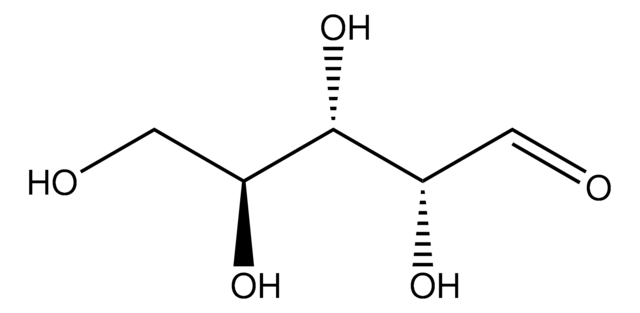B3420
Sodium benzoate
BioXtra, ≥99.5%
Synonym(s):
Benzoic acid sodium salt
About This Item
Recommended Products
product line
BioXtra
Quality Level
Assay
≥99.5%
form
powder
impurities
≤0.0005% Phosphorus (P)
≤0.1% Insoluble matter
mp
>300 °C (lit.)
solubility
H2O: 1 M, clear, colorless
anion traces
chloride (Cl-): ≤0.05%
sulfate (SO42-): ≤0.05%
cation traces
Al: ≤0.0005%
Ca: ≤0.01%
Cu: ≤0.0005%
Fe: ≤0.0005%
K: ≤0.10%
Mg: ≤0.005%
NH4+: ≤0.05%
Pb: ≤0.001%
Zn: ≤0.0005%
SMILES string
[Na+].[O-]C(=O)c1ccccc1
InChI
1S/C7H6O2.Na/c8-7(9)6-4-2-1-3-5-6;/h1-5H,(H,8,9);/q;+1/p-1
InChI key
WXMKPNITSTVMEF-UHFFFAOYSA-M
Looking for similar products? Visit Product Comparison Guide
General description
Application
Biochem/physiol Actions
Signal Word
Warning
Hazard Statements
Precautionary Statements
Hazard Classifications
Eye Irrit. 2
Storage Class Code
13 - Non Combustible Solids
WGK
WGK 1
Flash Point(F)
Not applicable
Flash Point(C)
Not applicable
Personal Protective Equipment
Regulatory Listings
Regulatory Listings are mainly provided for chemical products. Only limited information can be provided here for non-chemical products. No entry means none of the components are listed. It is the user’s obligation to ensure the safe and legal use of the product.
JAN Code
B3420-250G:
B3420-VAR:
B3420-1KG:
B3420-BULK:
Choose from one of the most recent versions:
Certificates of Analysis (COA)
Don't see the Right Version?
If you require a particular version, you can look up a specific certificate by the Lot or Batch number.
Already Own This Product?
Find documentation for the products that you have recently purchased in the Document Library.
Customers Also Viewed
Our team of scientists has experience in all areas of research including Life Science, Material Science, Chemical Synthesis, Chromatography, Analytical and many others.
Contact Technical Service






